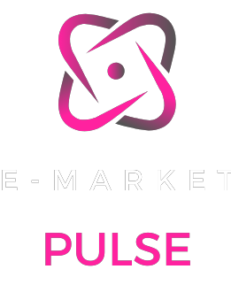

Payment Gateways and Security: Protecting Your E-Commerce Business
Introduction
In the dynamic landscape of e-commerce, ensuring a seamless and secure payment process is a non-negotiable priority for online businesses. Payment gateways serve as the bridge between your customers and their transactions, making it vital to understand the various options, their pros and cons, and the crucial importance of safeguarding customer data and financial transactions. In this comprehensive guide, we’ll dive into the world of payment gateways and e-commerce security to protect your online business.
Payment Gateways: The Backbone of Online Transactions
Payment gateways are the technology that authorizes credit card and other payment method transactions on e-commerce websites. They play a fundamental role in online business operations, and selecting the right one is critical. Here’s a look at the various payment gateways and their pros and cons:
1. PayPal:
Pros:
**Ease of Use:** PayPal is user-friendly, making it a popular choice for both customers and businesses.
**Global Reach:** PayPal is widely accepted, with a global presence, allowing international transactions.
**Security:** PayPal is known for its robust security measures, including buyer and seller protection.
Cons:
**Fees:** Transaction fees can be relatively high, particularly for international payments.
**Limited Customization:** While PayPal is easy to implement, it may offer limited customization options for the checkout process.
2. Stripe:
Pros:
**Developer-Friendly:** Stripe is popular among developers for its API and extensive documentation.
**International Support:** Stripe supports businesses in various countries and currencies.
**Flexibility:** Businesses can use Stripe for one-time payments, subscriptions, and more.
Cons:
**Tech Skills Required:** Stripe may not be as user-friendly for non-technical users and may require development expertise.
**Charge backs:** Dealing with disputes and charge backs can be complex and time-consuming.
3. Square:
Pros:
**In-Person Integration:** Square is ideal for businesses that have both online and physical store locations.
**Simplicity:** Square offers a straightforward, easy-to-use interface.
**Fees:** Competitive pricing and a flat-rate fee structure are advantageous for some businesses.
Cons:
**Limited E-commerce Features:** Square may not offer as many e-commerce features as other platforms.
**Not Ideal for High-Risk Businesses:** Some high-risk industries may face difficulties using Square.
GET FREE EXCLUSIVE ACCESS TO OUR MEMBERS CLUB:
BOOST your chance of success.
- FREE membership to our Weekly Insiders Secrets.
- FREE tailored resources and gifts..
- PLUS qualify to receive personal coaching support from our friendly resident experts.

* We respect your privacy. We will never spam you or share your details.
4. Authorize.Net:
Pros:
**Wide Acceptance:** Authorize.Net is widely accepted in the United States and is known for its reliability.
**Security:** Strong security features, including fraud detection and prevention tools.
**Versatility:** Authorize.Net can be integrated with various e-commerce platforms.
Cons:
**Setup Complexity:** The initial setup and configuration may be more complex for some users.
**Fees:** Some users find the pricing structure less competitive than other gateways.
5. Adyen:
Pros:
**Global Reach:** Adyen supports businesses across the globe and provides access to various local payment methods.
**Customer Data Security:** Strong emphasis on data security and compliance with international regulations.
**Comprehensive Reporting:** Adyen offers detailed reporting and analytics for businesses.
Cons:
**Complex Pricing:** Pricing can be complex, with various fees and custom arrangements.
**Integrations:** Some users may find integrating Adyen with their platform more challenging.
E-Commerce Security: Protecting Customer Data and Transactions
In the world of e-commerce, security is paramount. Safeguarding customer data and financial transactions is not only a best practice but a legal requirement in many regions. Here’s how to ensure your e-commerce business is well-protected:
1. SSL Encryption:
Implement SSL (Secure Sockets Layer) encryption to protect data in transit between your website and the customer’s browser. This encryption ensures that sensitive information, such as credit card details, is secure during transmission.
2. Payment Card Industry Data Security Standard (PCI DSS) Compliance:
Comply with PCI DSS standards to secure payment card data. Use a PCI-compliant payment gateway and avoid storing sensitive customer data on your servers.
3. Two-Factor Authentication (2FA):
Implement 2FA for administrative access to your e-commerce platform and any systems that handle customer data. This adds an extra layer of security to protect against unauthorized access.
4. Regular Security Audits:
Conduct regular security audits and vulnerability assessments to identify and address potential weaknesses in your e-commerce platform.
5. Strong Password Policies:
Enforce strong password policies for both customers and employees. Encourage the use of unique, complex passwords.
6. Regular Updates and Patching:
Keep your e-commerce platform, plugins, and third-party integrations up to date with the latest security patches and updates.
7. Data Backup and Recovery:
Implement a robust data backup and recovery system to ensure that, in the event of a security breach, you can recover your data without significant loss.
8. Employee Training:
Train your employees in security best practices to prevent data breaches resulting from human error.
9. Secure Payment Gateway Selection:
Choose a secure payment gateway with a strong track record of data security and compliance with industry standards.
10. Legal Compliance:
Stay informed about relevant data protection regulations in your region and ensure that your e-commerce business complies with these laws.
Conclusion: A Secure and Reliable E-Commerce Business
In the digital age, the world of e-commerce is thriving, but it’s also a prime target for cyber threats. Protecting your online business involves both selecting the right payment gateway and implementing robust security measures. A secure and reliable e-commerce business not only protects customer data and transactions but also builds trust, fosters customer loyalty, and ensures the long-term success of your brand. By mastering payment gateways and prioritizing security, you can safeguard your e-commerce business and create a safe and enjoyable shopping experience for your customers.
MORE LIKE THIS...
Bringing you the latest information, ideas, products and services for your E-commerce business.
Copyright 2024 E-Market Pulse
Contact Us
We may receive compensation from partners listed through affiliate partnerships, at no cost to you. This doesn’t influence our ratings, and the opinions are our own
Subscribe to our Newsletter
Get updates on products and services specially targeted to help you succeed.
